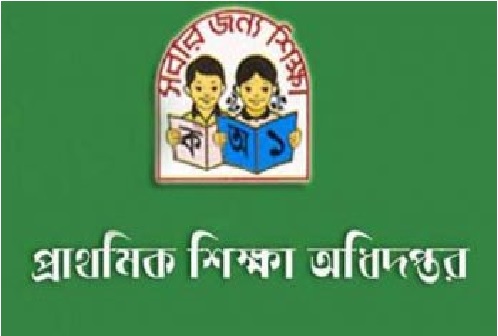Login IPEMIS DPE Gov BD ই-প্রাইমারী-স্কুল-সিস্টেম প্রাথমিক শিক্ষা অধিদপ্তর
The Directorate of Primary Education (DPE) is an arm of the Ministry of Primary and Mass Education in Bangladesh. The DPE is responsible for overseeing primary education throughout the country. In this article, we will provide an overview of the DPE and its functions.
Login IPEMIS DPE Gov BD ই-প্রাইমারী-স্কুল-সিস্টেম প্রাথমিক শিক্ষা অধিদপ্তর
PEMIS System https://login.ipemis.dpe.gov.bd/
PEMIS সিস্টেম https://ipemis.dpe.gov.bd/
https://ipemis.dpe.gov.bd/?lang=en_EN
http://www.dpe.gov.bd
ই-প্রাইমারী-স্কুল-সিস্টেম https://ipemis.dpe.gov.bd/why-pemis
EMIS সম্পর্কিত তথ্য https://ipemis.dpe.gov.bd/why-pemis
History
The Directorate of Primary Education was established in 1981 as a separate entity within the Ministry of Education. Before the establishment of the DPE, primary education was overseen by the Department of Education. The DPE was created to provide more focus on primary education and to develop policies and programs that would improve the quality of primary education in the country.
Functions
The DPE has several functions related to primary education in Bangladesh. These include:
Policy development: The DPE is responsible for developing policies related to primary education. This includes policies related to curriculum development, teacher training, and student assessment.
Curriculum development: The DPE develops the national curriculum for primary education. The curriculum is designed to provide a comprehensive and balanced education to students.
Teacher training: The DPE provides training for primary school teachers. This includes pre-service training for new teachers, as well as in-service training for experienced teachers.
Student assessment: The DPE is responsible for developing assessments for primary school students. These assessments are designed to measure student learning outcomes and to identify areas where improvement is needed.
School management: The DPE oversees the management of primary schools throughout the country. This includes the recruitment of teachers, the provision of educational resources, and the monitoring of school performance.
Research and development: The DPE conducts research on different aspects of primary education. This research is used to inform policy development and program implementation.
Coordination: The DPE coordinates with other government agencies and non-governmental organizations (NGOs) to improve primary education in the country.
Structure
The DPE is led by a Director General, who is appointed by the government. The Director General is responsible for overseeing the day-to-day operations of the DPE.
The DPE has several divisions, including the Curriculum and Textbook Division, the Primary Education Development Program (PEDP) Division, the Monitoring and Evaluation Division, and the Finance and Accounts Division. Each division is responsible for a specific area of primary education.
The DPE also has regional offices throughout the country. These offices are responsible for implementing policies and programs at the local level.
Achievements
Over the years, the DPE has achieved several notable successes in improving primary education in Bangladesh. Some of these achievements include:
Increased enrollment: The DPE has worked to increase enrollment in primary schools throughout the country. In 2020, the net enrollment rate for primary school was 95.6%, up from 87% in 2000.
Improved literacy rates: The DPE’s efforts have led to improvements in literacy rates among primary school students. In 2020, the literacy rate for primary school students was 63%, up from 52% in 2000.
Gender parity: The DPE has worked to achieve gender parity in primary education. In 2020, the gender parity index (GPI) for primary school was 1.00, meaning that girls and boys had equal access to primary education.
Quality improvements: The DPE has implemented several quality improvement initiatives, such as teacher training programs and curriculum revisions. These initiatives have helped to improve the quality of primary education in the country.
Challenges
Despite its successes, the DPE faces several ongoing challenges in improving primary education in Bangladesh. Some of these challenges include:
Limited resources: The DPE operates with limited resources, which can make it difficult to implement programs and initiatives.
Teacher shortages: There is a shortage of qualified teachers in many parts of the country. This can limit the quality of education that students receive.
Infrastructure: Many primary schools in Bangladesh lack basic infrastructure, such as adequate classrooms and sanitation facilities. This can make it difficult for students to learn and for teachers to teach effectively.
Equity issues: Despite progress in achieving gender parity, there are still equity issues in primary education. Students from disadvantaged backgrounds may not have access to the same quality of education as their peers.
Conclusion
The Directorate of Primary Education plays a critical role in improving primary education in Bangladesh. Through its policies and programs, the DPE has made significant progress in increasing enrollment, improving literacy rates, achieving gender parity, and improving the quality of education. However, ongoing challenges, such as limited resources and teacher shortages, mean that there is still work to be done to ensure that all children in Bangladesh have access to high-quality primary education.



